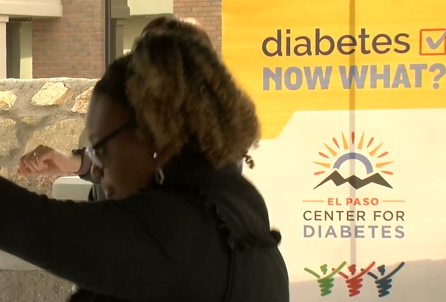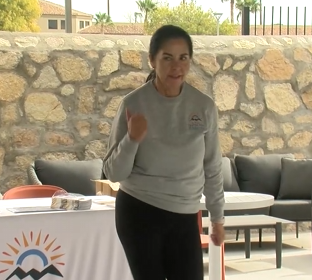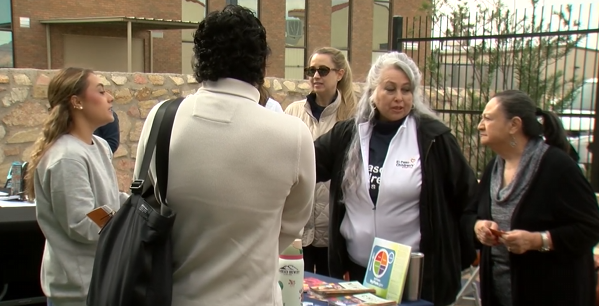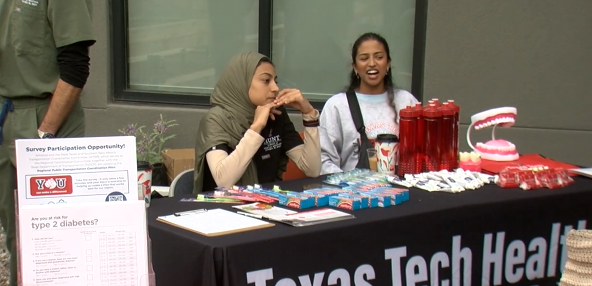Local organizers provide diabetes awareness and resources
EL PASO, Texas (KVIA) - The El Paso Center for Diabetes in collaboration with the Paso del Norte Health Foundation and the Diabetes Alliance provided free health screenings and education to El Pasoans during this weekend's Diabetes Awareness Month Open House.

"Many millions of people have diabetes in the United States, and it's a chronic condition that if it's not well managed, it can lead to several complications," said Dr. Luis Ortiz, an endocrinologist specializing in diabetes, practices at the Medical Services of the Border.

El Paso tops the nation in the number of people with diabetes, with doctors calling it an epidemic.
The event helps to raise awareness for everyone in the community. Patients who have diabetes were able to speak to experts about managing their diabetes and new innovations in treatment and tracking of the disease.

"To raise awareness on educating patients who have diabetes, and spreading information about early prevention, management, and strategies to live a healthier life," added Ortiz.
Diabetes is a chronic disease where the body is unable to produce enough insulin, it causes high blood sugar levels which cause damage to organs over time. According to the National Institutes of Health, diabetes occurs when the pancreas is not producing enough insulin or the body does not efficiently use the insulin it does produce.

While hormonal changes during pregnancy, environmental triggers, or other medical conditions can factor into a diabetes diagnosis, the main causes are genetic predisposition, lack of exercise, and lifestyle.
"Raising awareness about diabetes here in El Paso is extremely important because a lot of El Pasoans have diabetes, suffer from diabetes, because we as Hispanics between the food we eat and the genetics we're at a high predisposition of getting diabetes," said Ortiz. "So raising awareness on early detection and prevention. It's very important."

"The early signs of diabetes are increased thirst, increased urination, weight loss, or even some skin changes. Blurred vision and sores that are slow to heal can also signal a diabetes diagnosis.
Dr. Alfred Marquez with the El Paso Center for Diabetes said that diabetes affects dental and mental health in way most people do not understand.
"A lot of the patients don't understand how to take care of it and what we see as dentists is inflammation of the gum tissue, uh, we'll see loss of bone around. The gums, paradon gum disease, uh, we can see, uh, compromised airways, uh, we see just so many different things," said Marquez.

Diabetes can lead to bleeding gums, pus, tooth decay and other oral health issues.
"We really don't understand how much sugar we consume the types of sugar that we consume we don't understand what it does to us and you know a lot of times we think sugar is just gonna affect and cause tooth decay but it goes way beyond," he added.
The integration of dentistry into the treatment of diabetes is critical according to Marquez and other health experts.
"Awareness is critical we have to have a resource which thank God we do have it now for the patients and I think that's great what the El Paso Center for Diabetes is doing for our community," Marquez stated.
Diabetes are urged to see a dentist on a regular basis to check on their oral health and how their blood sugar levels could be affecting the health of their teeth and gums.
Annual eye exams are also encouraged as high blood sugar level can impact eye sight.
